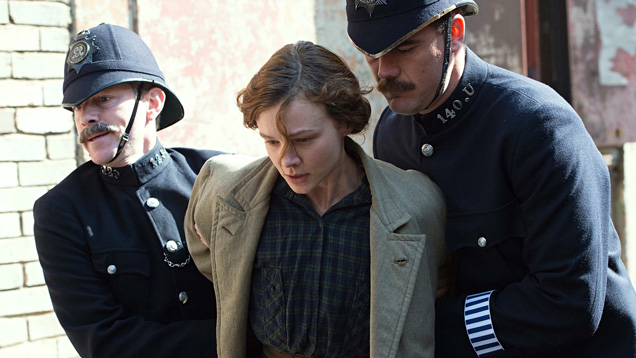The fight for equality has never been easy
 CREDIT: FOCUS FEATURES (2015)
CREDIT: FOCUS FEATURES (2015)With strength and determination, these women created a better world for all of us.
The right to vote. These days, it’s something so many of us take for granted that we see it more as a burden than a privilege. We grumble about travel times and inconvenience while, in other countries, the ability to vote at all is still possibly years away. However, it wasn’t always this way.
Less than a century ago, women took up the fight, arguing that they deserved all the same rights as men, especially the right to elect representatives. The struggle lasted for years as the men in government became more stubborn and the women became more militant.
Suffragette, with its focus on one small group of women, does an excellent job of exploring both sides of the issue in as fair a light as possible. While the movie is set in Great Britain, many of the same trends were taking place in Canada at the same time. As part of the British Commonwealth, the story of how British women gained their rights is a part of our own history.
The movie spends the majority of its time focussed on one woman, Maud Watts who is played by Carey Mulligan. Mulligan does an amazing job of showing the inner conflict, struggling between societies expectations of what a woman should be and her own knowledge of what is right. Slowly stripped of everything she knew, every loss only serves to strengthen her resolve to fight on until the end.
The entire cast is absolutely incredible, bringing weight to every moment. Helena Bonham Carter drops her regular quirkiness to portray an intelligent and fierce woman named Edith Ellyn. It’s refreshing to see her away from the type-casting that’s been haunting her for the past several years, as she’s far more versatile an actress than her portrayal of Bellatrix Lestrange may lead one to believe.
Meryl Streep, as the suffragette leader Emmeline Pankhurst, spends most of the movie quietly influencing events off-screen before managing to display a fiery passion for equality in a single speech; far from an unusual act for Streep, who has made some amazing remarks about equality in Hollywood herself.
Impressively, Suffragette manages to make the movement feel very much like a human issue rather than one only for women or one against men. With one or two exceptions, the men in the film are shown as struggling with the pressures of the law and society. It’s a reminder that what’s always been isn’t always right, and sometimes we have to step back from our place of privilege to see the world as it truly is.
The one complaint with the film is that the editing could have been far better. Many of the shots are strangely close, to the point where only part of one person’s face fills the entire screen. At other times the shots jump so quickly it’s very disorienting, even when a continuous shot would clearly have been the more logical choice.
These jumps occasionally make the movie hard to follow, as the characters will talk about a future meeting, then the action will jump to something else entirely. Only the beginning of the film gives any indication of time passing, so it’s hard to tell if the movie is supposed to be taking place over weeks or months. This is one of the few cases where date subtitles would have been both appropriate and useful, and yet they aren’t used at all.
Suffragette is a movie that is both good and important. As women in other countries still struggle for the freedom to vote, it’s important to remember the struggles of our past. While Canada and the rest of the world still have a long way to go before everyone becomes equal in practice as well as in law, seeing how far we’ve come gives us reason to hope.














